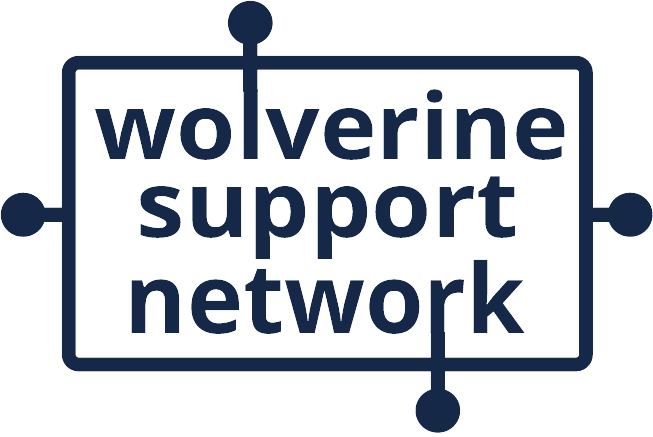
HISTORY
The Wolverine Support Network (WSN) was founded in 2015 by a group of students who recognized the social stigmas, financial burdens, and timing inconveniences associated with discussing student mental health and well-being. Ignited by the loss of two fellow students at the University of Michigan to suicide, and their own battles with mental health, incumbent Central Student Government President Bobby Dishell, Student Athlete Advisory Committee President Cooper Charlton, Emily Lustig, and Elizabeth Pratt developed a resolution. Simply put, their solution was honest and open peer-to-peer dialogue. Parents Diane Orley and Linda Aikens, in partnership with the George Orley Mental Wellness Initiative, assisted the founding leadership team in moving WSN from an idea to a reality. Moreover, this model of Peer Support Groups on the University of Michigan Ann Arbor campus would not have been possible without the hard work and support of our University’s Counseling and Psychology Services (CAPS) Director, Todd Sevig. Currently, The Support Network’s Advisory Team consists of Cooper Charlton, Emily Lustig, Jenna Mangle, Lizzy Pratt, Naomi Pohl, Sam Orley, and Sarah Dalley.
While various other mental health-related resources exist, research shows that undergraduate students provide the most potent source of influence on fellow undergraduate students’ affective and cognitive growth and development during college. Further, research indicates peer-support programs are helpful when focused on assisting students with social/emotional or academic problems, and “...provide growth and learning opportunities for both mentors and mentees, resulting in a ‘double impact.” Peer support programs can also help create a positive school culture and a connectedness to the school community to both mentors and mentees. Thus, the model capitalizes on peer-to-peer influence with the goal to inspire increased self-awareness, vulnerability, and resilient, high-quality connections.
WSN has grown immensely over the past five years, with large milestones including: adding graduate peer-support groups to our model, creating the Organizing Team program, expanding our undergrad presence to offer 35+ groups a semester, and helping to expand the model to other campuses across the nation. As an accessible resource in terms of location, time to entry, and accommodation of existing commitments, WSN aims to continue expanding on the Michigan campus in the future.
